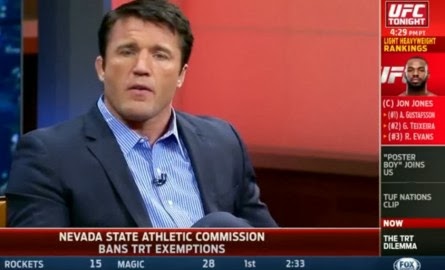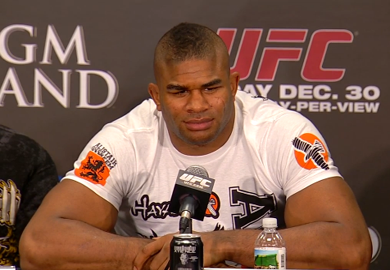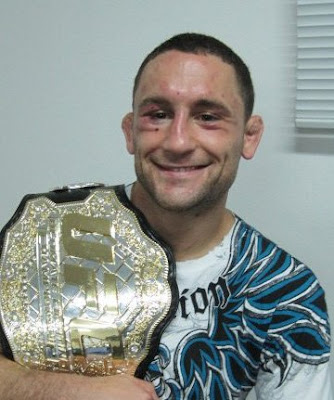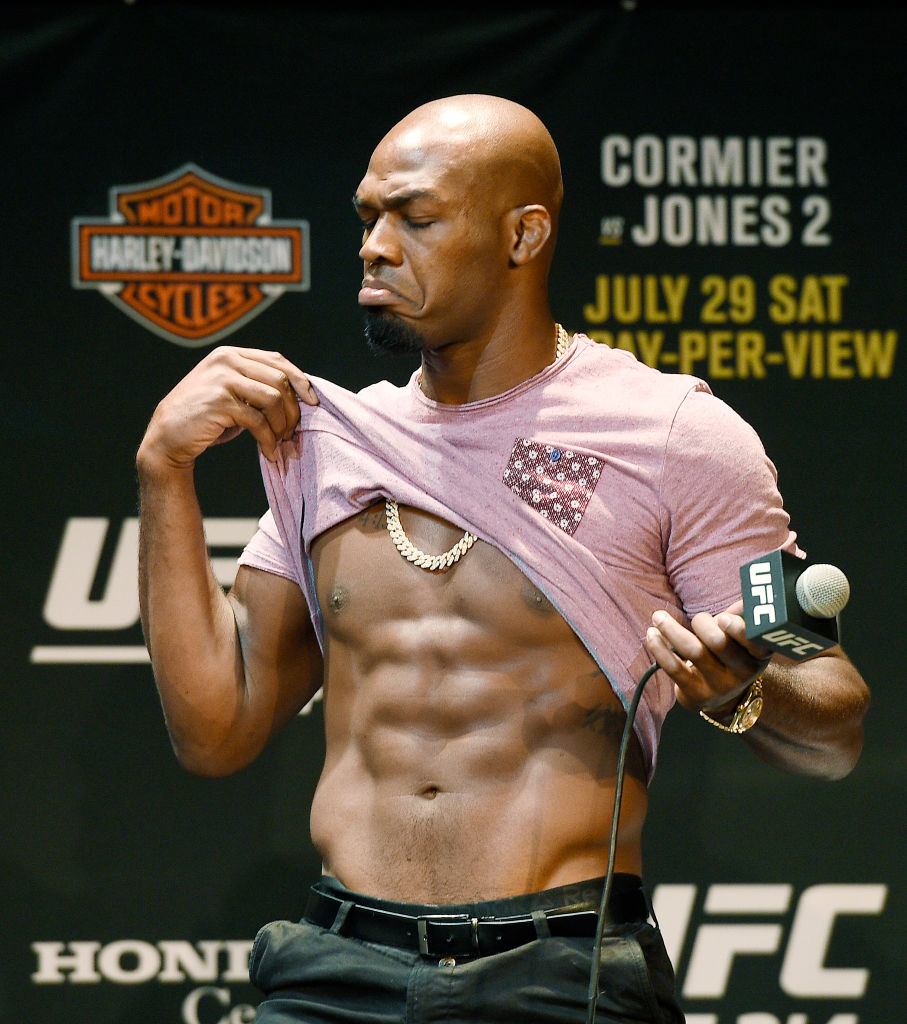Whether the sports public wants to believe it or not, some of their favorite stars are using performance-enhancing drugs. Whenever a major name is caught juicing, there always seems to be a major fallout, but no one should really be surprised anymore. In the MMA world, the use of testosterone replacement therapy has become the rage, and ESPN’s recent exposé presented some interesting facts about the treatment. The results were astounding, and has already led to what may be the biggest news story in the sport this year.
Last week, the Nevada State Athletic Commission made a landmark ruling to ban the usage of TRT in athletics. This move has since been followed by the California State Athletic Commission. The moment that the NSAC’s decision was announced, the ramifications were expected to hit the sport of mixed martial arts hard, but they came even more swiftly than expected.
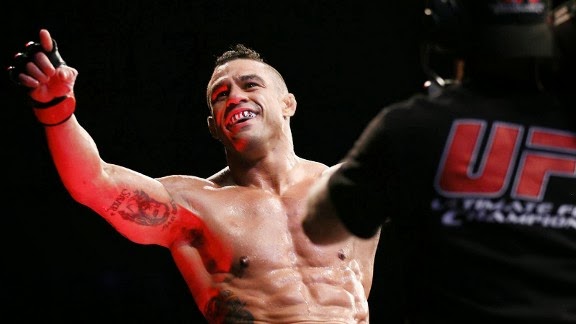 Top ranked middleweight contender Vitor Belfort was pulled from his UFC 173 title shot against Chris Weidman due to the new regulations, though he and the UFC have conflicting statements on the reason why he was pulled. Regardless, the sports world can only make assumptions about whether he and other fighters that have been linked to TRT are truly benefiting from the therapy, but this moment should be considered a move in the right direction when in comes to dealing with performance-enhancing drugs.
Top ranked middleweight contender Vitor Belfort was pulled from his UFC 173 title shot against Chris Weidman due to the new regulations, though he and the UFC have conflicting statements on the reason why he was pulled. Regardless, the sports world can only make assumptions about whether he and other fighters that have been linked to TRT are truly benefiting from the therapy, but this moment should be considered a move in the right direction when in comes to dealing with performance-enhancing drugs.
Does this mean that PEDs are out of mixed martial arts? Absolutely not. The need for comprehensive testing is still a gaping hole that the sport must fill. The current standards do not seem to be sufficient, as some fighters are still willing to take the risk of testing positive in order to gain a perceived leg up. Yet there is still something to say about the NSAC and other organizations singling out the usage of testosterone replacement therapy.
One of the more interesting aspects of the ESPN piece is the section that detailed how many other athletes in major sports had applied for a therapeutic use exemption (TUE) in the state of Nevada, compared to those in MMA. According to Mike Fish’s research, 15 fighters have applied for TUEs in the last five years. However, the International Olympic Committee didn’t issue any exemptions for the 2012 London games, which featured more than 5000 male athletes. Major League Baseball and the National Football League reported very low numbers as well. The most telling point was the fact that in professional boxing, zero fighters had applied for an exemption within Nevada. Percentage-wise, the number of fighters applying for and receiving TUEs is much higher than what is seen in other sports.
TRT gives fighters an opportunity to extend their professional careers. That is the problem, and the reason it should be seen as performance-enhancing. In all other sports, when a player passes his or her prime and begins to fade, he or she eventually steps away from the sport. Michael Jordan, Troy Aikman, and Derek Jeter (who will retire at the end of the 2014 MLB season) are all on the list of star players that have seen their careers defeated by Father Time.
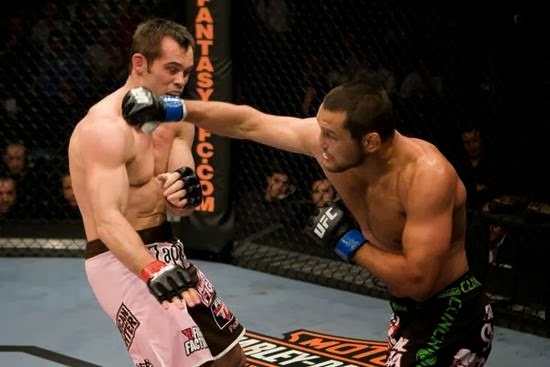
Yet in mixed martial arts, Dan Henderson and Chael Sonnen are two prominent fighters that have used TRT in the past to add life to their careers. Bellator main event attraction Quinton “Rampage” Jackson has admitted to using it as well. Belfort receives the most scrutiny for using TRT, mostly because he has a prior positive test for performance-enhancing drugs back in 2006. There are real medical reasons that would require TRT, but the question that should be posed to Henderson, Sonnen, and others is if they’ve reached that point in their lives, why are they still competing in a sport as violent as mixed martial arts?
Performance-enhancing drugs is an issue that has affected mixed martial arts for some time, and testosterone replacement therapy is the most recent mechanism for fighters to receive benefits unnaturally, albeit in a “legal” way. Even though athletic commissions have taken steps to remove TRT from the sport, there’s still a cause for concern that the next new form of performance enhancement will be even more widespread, but even harder to catch and regulate. Other sports have gone through similar situations in the past, only to create more stringent policies. It is time that the commissions which regulate MMA follow suit.

